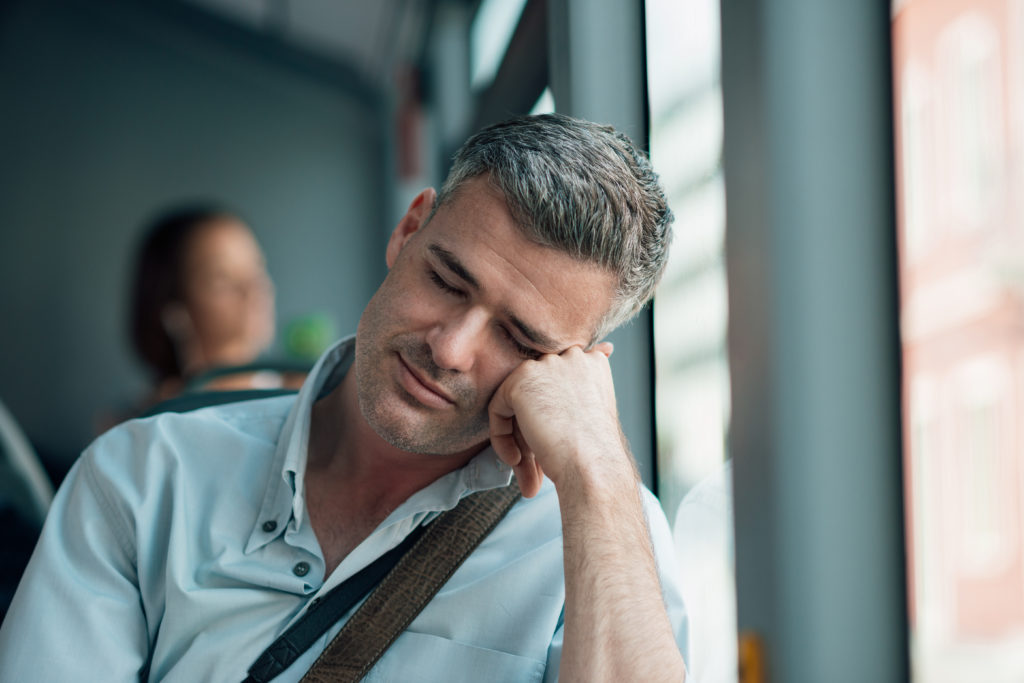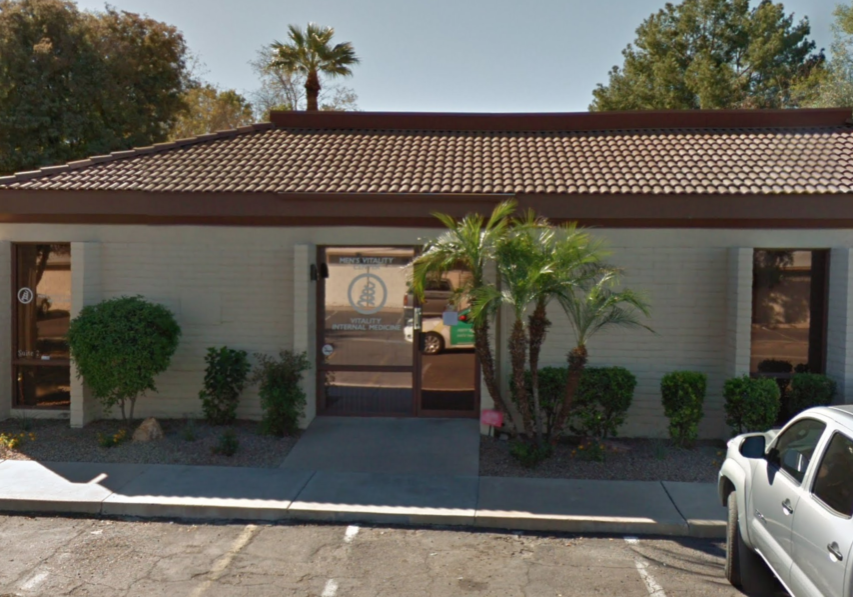Low testosterone and sleep deprivation can affect energy levels to carry out daily activities. These include decreased concentration at work, motivation to exercise, decreased sex drive and more.
The link between the two goes both ways. While low testosterone can cause sleep disturbances, sleep disturbances can cause decreased testosterone production. Evidently, this can become a vicious cycle for older adults that are primarily men.

Men with a higher likelihood of low testosterone that links to sleep are primarily older. Although this is common, there are ways to influence sleep to help produce testosterone overnight.
How Low Testosterone and Sleep are Linked Together
For the body to produce normal testosterone, it requires restful, undisturbed sleep. This sleep is called REM sleep, and it is extremely important for the body to go through this cycle every night. When the body relaxes and recovers overnight, it also spends that time to produce testosterone. Over time, sleep disturbances or lessen hours of sleep can cause an increase in cortisone.
Cortisone, once activated, becomes cortisol, the hormone associated with stress. Increased cortisone and cortisol levels can cause low testosterone. This loosely shows the relationship between low testosterone and sleep.
One fact to note is that most older men with a reduction in sleep have been closely correlated with a decrease in testosterone. This is because studies show that older men with lower testosterone tend to have trouble sleeping. However, the actual causes of sleep deprivation with low testosterone are still unclear.
Tips for Better Sleep to Increase Testosterone Levels
According to many studies and experts, an adult should get seven to nine hours of sleep every night. This influences the body to hit REM sleep to not only replenish testosterone but also repair muscle, clean out the digestive tract and restore energy used during the day.
Here are a few tips to maintain optimum sleep.
- Establish a sleep routine. Set times when to go to bed and when to wake up, including the weekends. This allows the body to establish a reliable sleep pattern.
- Stay focused on your sleep routine. Try to only use the bedroom for sleep and bedroom activities, rather than watching TV and gaming. Every so often it should be okay, but the more distractions lead to longer periods before the body falls asleep.
- Get comfortable in your bedroom. Keep the room dark, quiet and at a comfortable temperature for sleeping.
- Don’t eat big meals before going to bed.
- Practice a relaxing bedtime ritual. For some, it may be reading a book, doing a light exercise, meditation..etc. This may help separate sleep time from activities that can cause excitement right before falling asleep.

Reading before bed as a nightly routine can help prepare the body for sleep. Although it does not influence testosterone production directly, it allows the body to relax right before we shut our eyes.
Related Article: 6 Ways to Increase Testosterone Levels from Low Testosterone Causes
Other Related Causes of Low Testosterone
There are many other causes that can lead to low testosterone and sleep, including sexual drive, erectile dysfunction and lack of motivation for exercise. However, low testosterone can also be the blame for decreased muscle mass, depression, anxiety, baldness and problems with focus.

Even though low testosterone can cause sleep disturbances, it can lead to other problems, such as decreased daily energy and motivation to focus.
Aging is often the biggest reason for testosterone productions to drop. At age 30, men will notice a gradual decrease. By 40, these men may begin to note sleeping problems. Then at age 50, they join the majority of those who suffer from normal sleep disturbances, erectile dysfunction, and decreased energy levels.
The fact of the matter is there are many related causes and problems that can lead to low testosterone and sleep. Understanding the causes can help those prepare themselves to get the body ready to not just sit by and let it happen.
However, we understand that those who suffer from low testosterone may have tried everything they can to no success. For those, we recommend seeing a physician that can help determine what the correct diagnosis to provide the best treatment for them.
To learn more about how testosterone therapy can help low testosterone, visit our testosterone replacement therapy page. Let us help you get your testosterone levels back to normal today!
Schedule Your Appointment
Fill out an appointment request to have one of our team members reach out to you or CALL(480) 534-5846 to set up your appointment today.
Find a Men's Vitality Center Near You
We pride ourselves on being a comprehensive Internal Medicine practice that specializes in Male Testosterone Replacement Therapy (TRT), Women's Hormone Replacement Therapy (HRT), Adult Internal Medicine and Opiate Addiction Treament near you.
3 Locations Valley-Wide to Best Serve You. Select a Clinic Below for Location Details & Google Reviews



